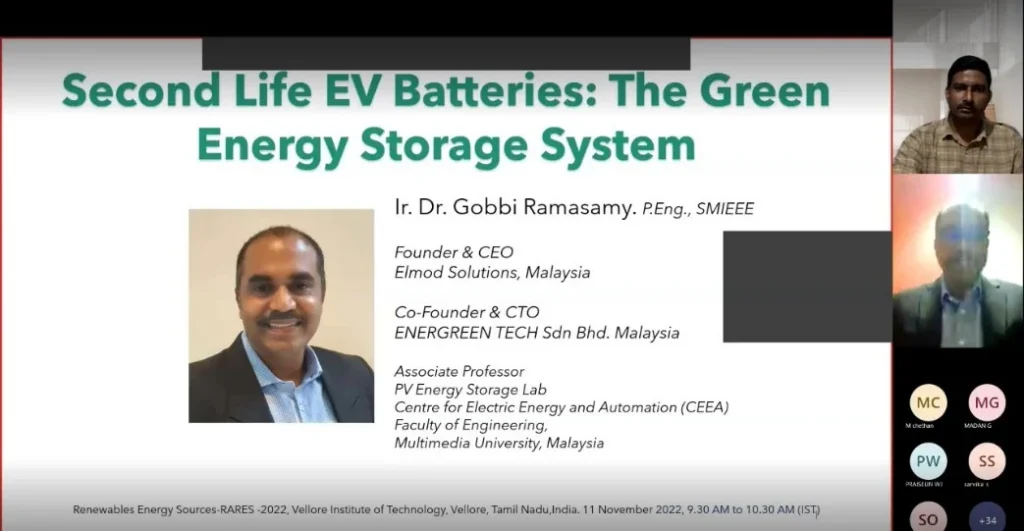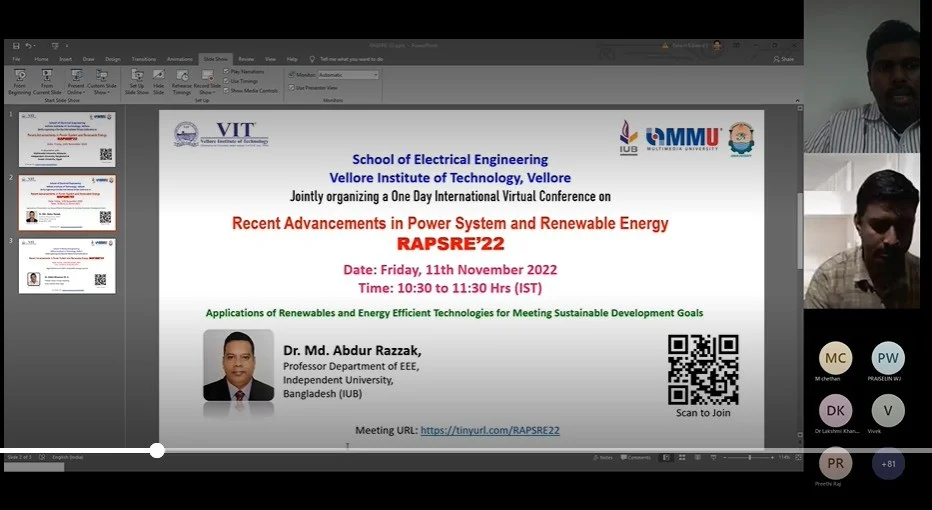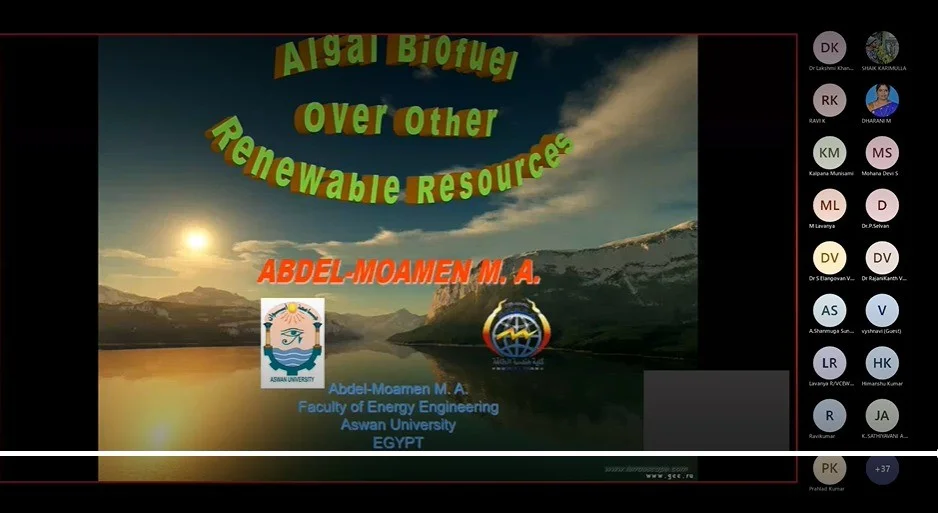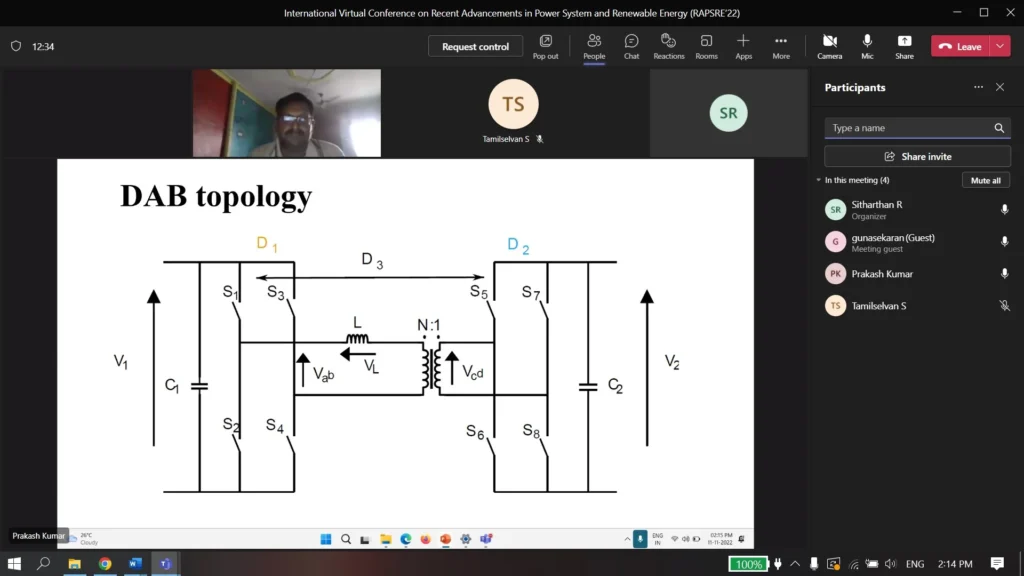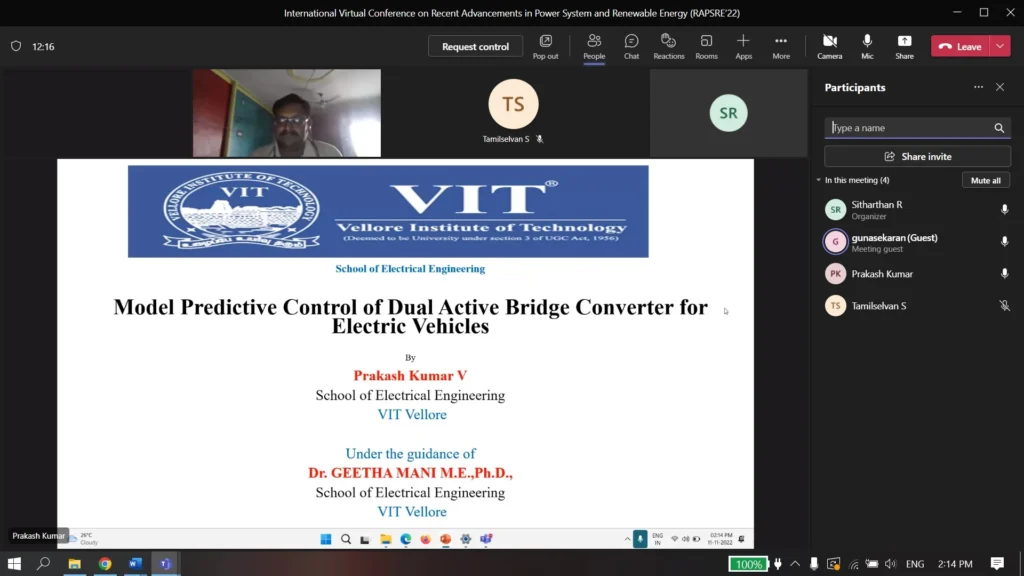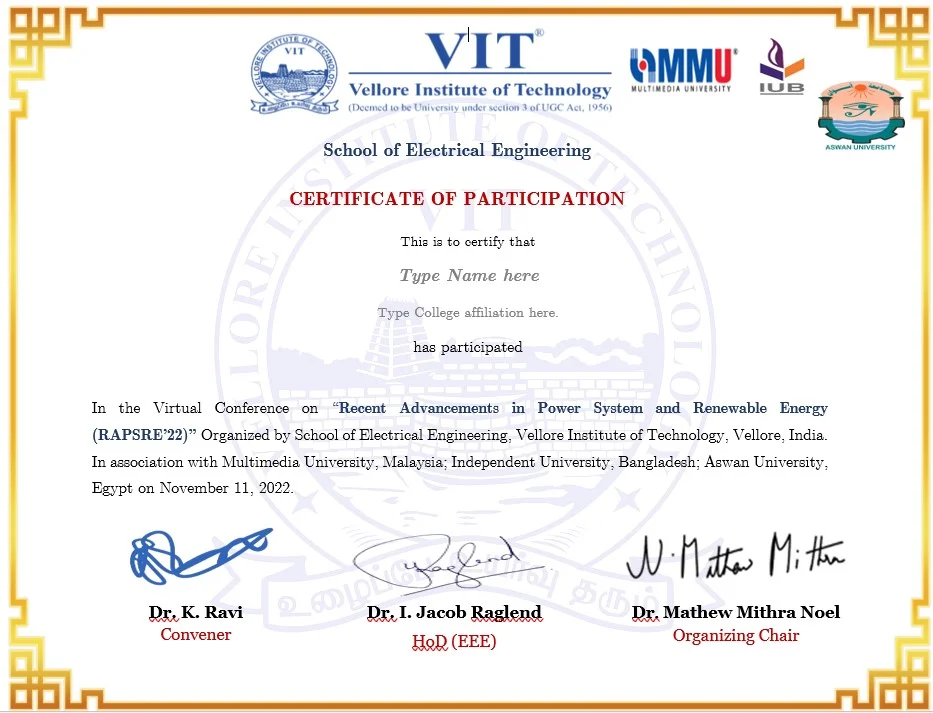Cross sectoral dialogue about SDGs
- Home
- sustainability
- Sustainability Initiatives 2022 - 2023
- Cross sectoral dialogue about SDGs
Addressing the SDGs’ complex, connected challenges requires cross-sectoral collaboration. It enables more effective, holistic, and sustainable solutions that can address numerous elements of development at once. Countries and organizations may achieve more progress and ensure that no one falls behind in the quest of sustainable development by collaborating across sectors such as education, health, the environment, and the economy. Achieving the SDGs necessitates strong monitoring and data systems. Cross-sectoral collaboration improves data collection, sharing, and analysis across multiple fields.
The 2nd International Conference on Control Automation and Signal Processing (iCASIC), held at Taylor’s University in Malaysia, provided a valuable platform for cross-sectoral dialogue about the SDGs. The conference, themed “Sustainable Developments through Automation”, emphasized how automation technologies and signal processing are crucial to achieving the Sustainable Development Goals (SDGs), particularly in the context of Industrial Revolution 4.0 and Society 5.0.
Key Highlights:
Interdisciplinary Focus: The conference brought together experts from both industry and academia, facilitating discussions on the intersection of technology, sustainability, and societal development. This cross-sectoral collaboration is essential for addressing the interconnected nature of the SDGs, which span various sectors like energy, industry, healthcare, education, and environment.
Sustainability through Technology: One of the primary topics was how automation can contribute to net-zero carbon emissions and enhance energy efficiency. This directly supports SDGs like SDG 7 (Affordable and Clean Energy) and SDG 13 (Climate Action), showing how advancements in control automation can drive sustainable practices across diverse sectors, including manufacturing, transportation, and urban development.
Global Collaboration: The hybrid format of the conference, held simultaneously in India and Malaysia, showcased how cross-border collaboration can drive global progress on SDGs. Keynote speakers from industry and universities shared insights that encouraged sharing of knowledge and best practices across sectors and regions, which is key to scaling up solutions to global challenges.
Empowering Future Innovators: The conference also focused on building competence among students and faculty in sustainable technologies. By educating the next generation of engineers and researchers on the importance of automation in achieving SDGs, the event fostered the development of a cross-sectoral talent pool equipped to drive change.
International Conference I
The iCASIC 2022 conference exemplified the importance of cross-sectoral dialogue in addressing the SDGs. By integrating perspectives from technology, industry, and academia, the conference illustrated how automation and signal processing can serve as enablers of sustainable development, offering holistic solutions to complex, interconnected global challenges. This collaborative approach is crucial for achieving the SDGs in a way that balances environmental sustainability, economic growth, and social equity.
Collaborative Discussions – University Visits as Part of iCASIC 2022
A team of delegates from the Department of Instrumentation, Vellore Institute of Technology (SELECT) visited several prominent universities in Malaysia as part of the iCASIC 2022 conference.
The universities visited included:- Taylor’s University, Malaysia
- MARA University of Technology, Malaysia
- University of Tunku Abdul Rahman (UTAR), Malaysia
- Sunway University, Kuala Lumpur, Malaysia
- Asia Pacific University, Malaysia
- Multimedia University, Malaysia
Key Topics Discussed During the Visits:
1) Semester Abroad Program: Exploring opportunities for student exchange and international exposure.
2) Online Guest Lectures: Discussing collaboration on virtual guest lectures by renowned academics.
3) Research Collaboration and Joint Publications: Strengthening partnerships for collaborative research and shared academic publications.
4) Twin Program (2+2 Degree): Exploring dual-degree programs that allow students to study across institutions.
5) Co-Guide Concept: Establishing joint supervision of student research projects by faculty from partner universities.
6) Joint Research Proposals: Identifying opportunities for joint funding applications and research initiatives.
7) Faculty Exchange: Facilitating exchange of faculty members for teaching and research collaboration.
8) Workshops and Faculty Development Programs (FDPs): Planning workshops and training programs for faculty to enhance skills and knowledge.
9) Partnering in Future Cobnferences: Discussing future opportunities for co-hosting or partnering in academic conferences.
These discussions aimed to strengthen academic ties, foster collaboration on research, and enhance opportunities for students and faculty between the institutions involved.
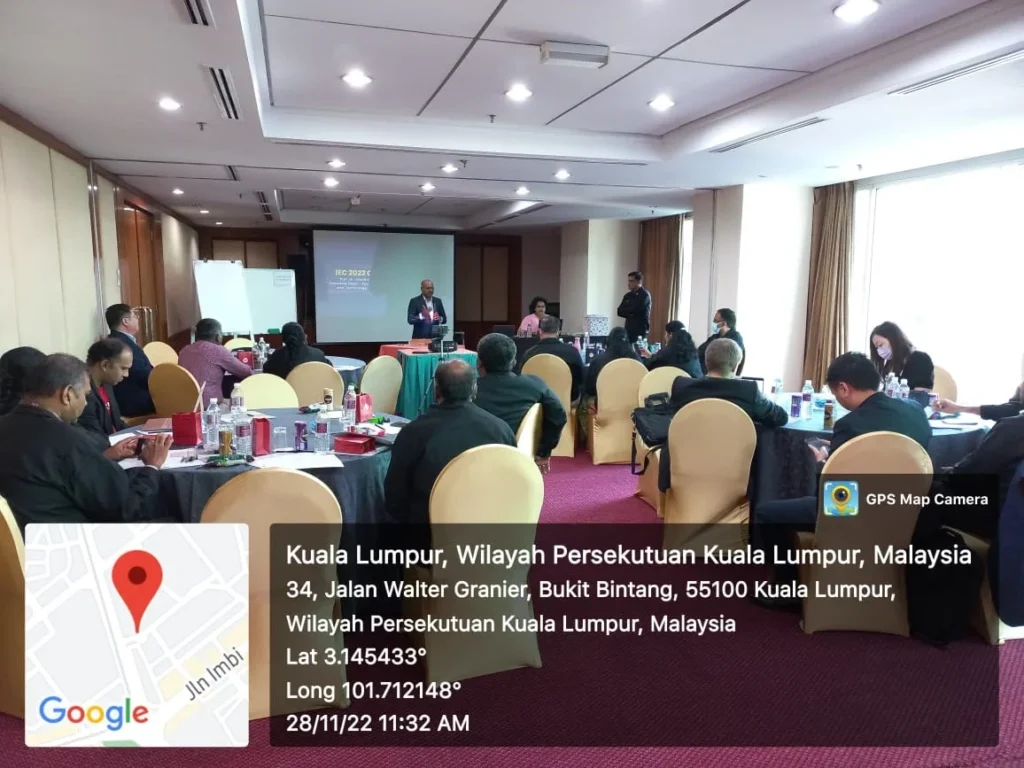
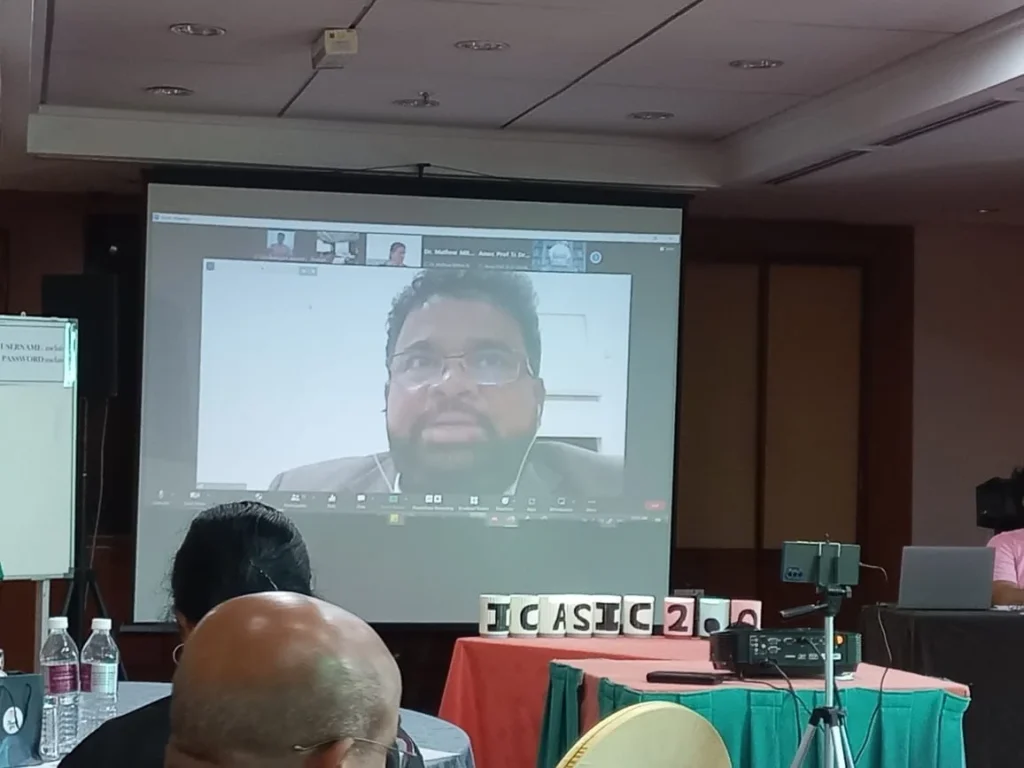
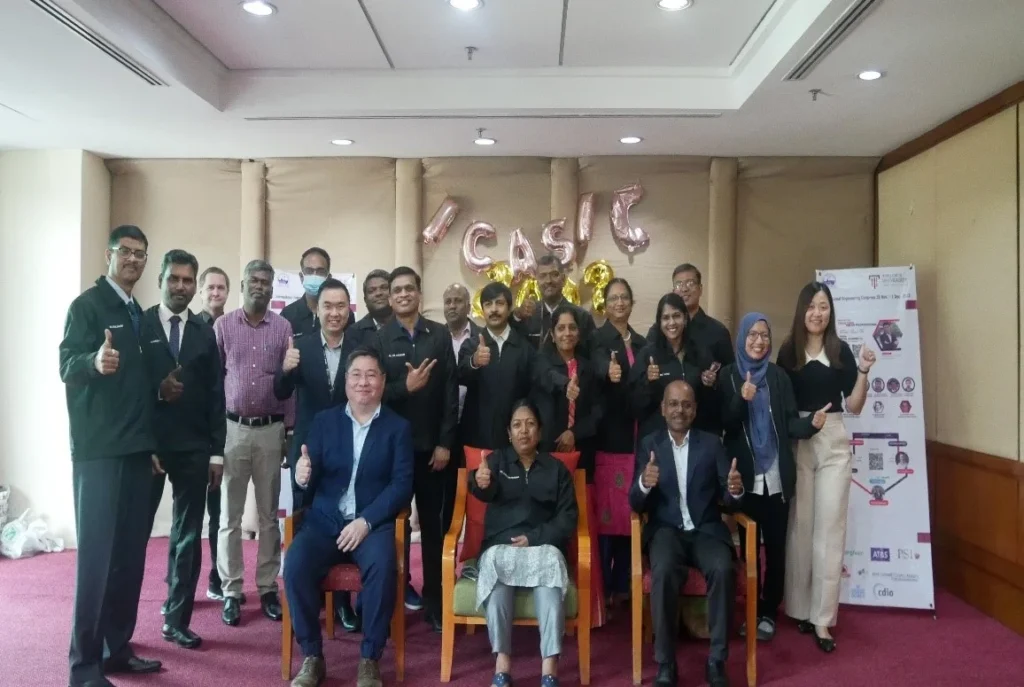
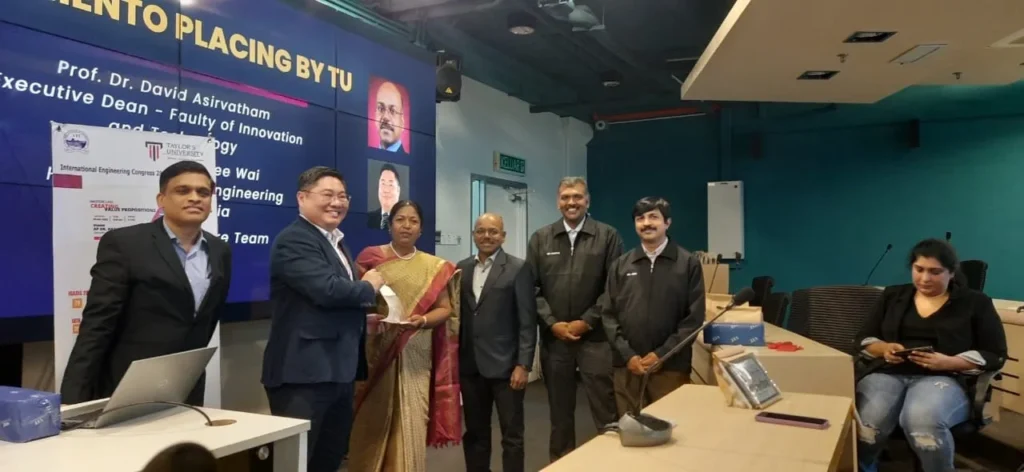
The School of Electrical Engineering at Vellore Institute of Technology successfully organized the 2nd International Conference on Automation, Signal Processing, Instrumentation, and Control (iCASIC 2022) on November 28-29, 2022, from 8:00 AM to 5:00 PM at Taylor’s University, Malaysia. The conference was co-hosted by Taylor’s University, Malaysia, and saw a participation of 240 delegates, including students, faculty, and staff members from various institutions. The event provided a platform for academic and industry experts to discuss the latest developments in the fields of automation, signal processing, instrumentation, and control systems.
International Conference II
School for Agricultural Innovations and Advanced Learning, Vellore Institute of Technology
International Conference, Recent Trends in Molecular Physiology of Horticultural Crops under Abiotic Stress during 04.12.2022 and 05.12.2022
A two-day international conference was organized on the 4th and 5th of December 2022. A total of 52 participants registered and attended the conference. During the Inaugural Function Dr.K. Ramasamy, Advisor VAIAL delivered the chief guest remarks on the importance of abiotic stress in horticultural crops. He emphasized that proactive technologies need to be developed to mitigate abiotic stress for the sustenance of horticulture production. Dr.S. Babu, Organizing Chair and Dean, delivered his talk on the recent advancements in abiotic stress at the molecular and physiological level and welcomed the gatherings. Followed by the Inaugural Session, 9 lead papers were presented by the keynote speakers during 5 sessions on day 1 and day 2. There were separate sessions for oral and poster presentations also. Totally 4 oral and 5 poster presentations were held. The conference announced the best paper awards in both sessions.
Dr. Kadambot Siddique, Professor, The University of Western Australia, Perth, Australia, Dr. Shailesh Kumar, Scientist, National Institute of Plant Genome Research, New Delhi, India, Dr. Ritesh Ghosh, Newton Fellow, Imperial College London, United Kingdom, Dr. Abdel Rahman Al Tawahi Professor, Al Hussain Bin Tala University Jordan, Dr. Galam Jalal Ahmad Associate Professor, Henan University of Science and Technology China, Dr. Ravi Gupta Assistant Professor Kookmin University South Korea, Dr. Naved Sabir Principal Scientist Indian Agricultural Research Institute New-Delhi, Dr. B. Fakurdin, Professor and Head University of Agricultural Science, Bengaluru, Dr. M. Alagupalamuthirsolai, Scientist, Indian Institute of Spice Research, Kerala, Dr. S. Srivignesh, Assistant Professor, Central University of Tamil Nadu, Tiruvarur were the resource persons for the conference.
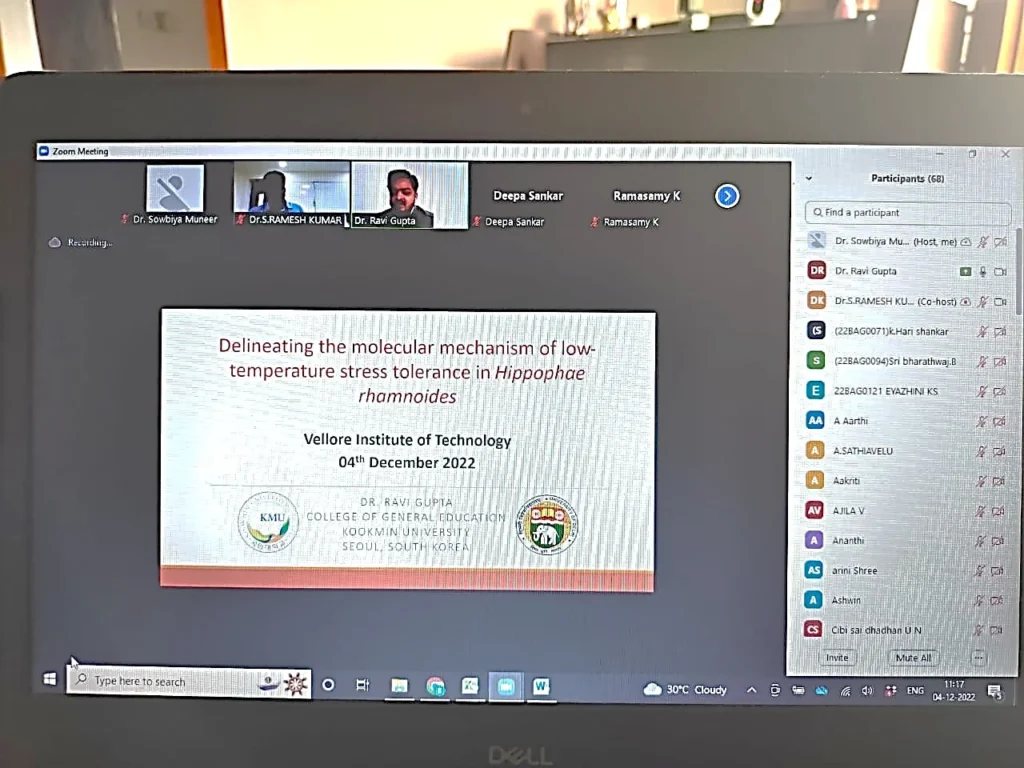
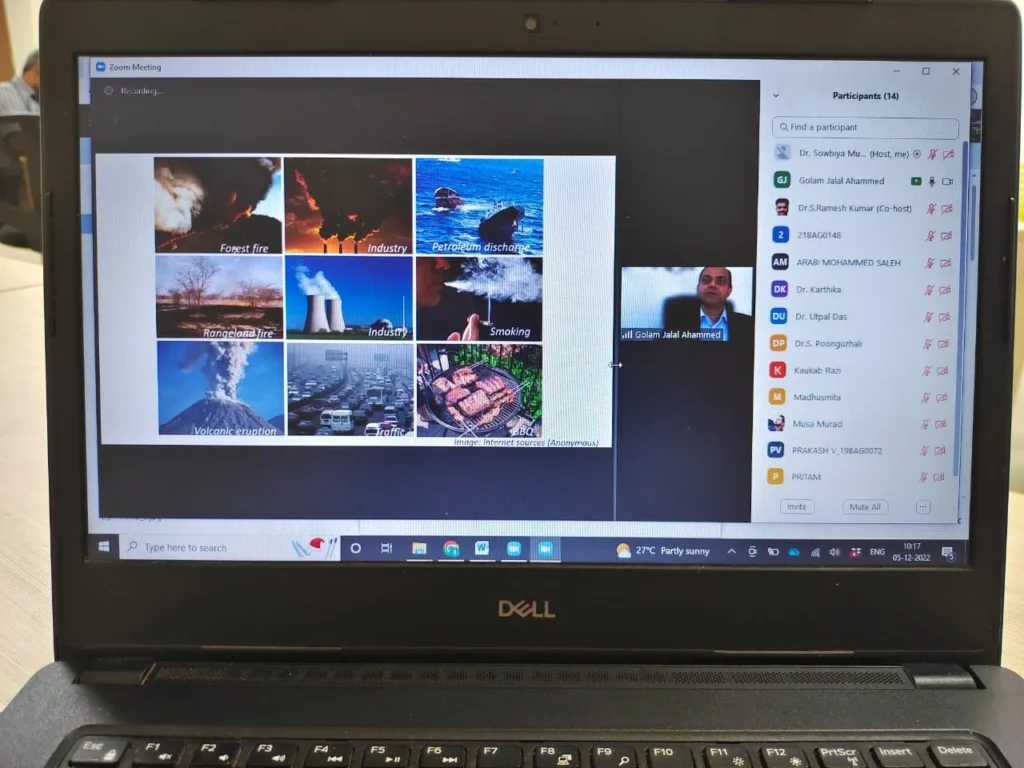
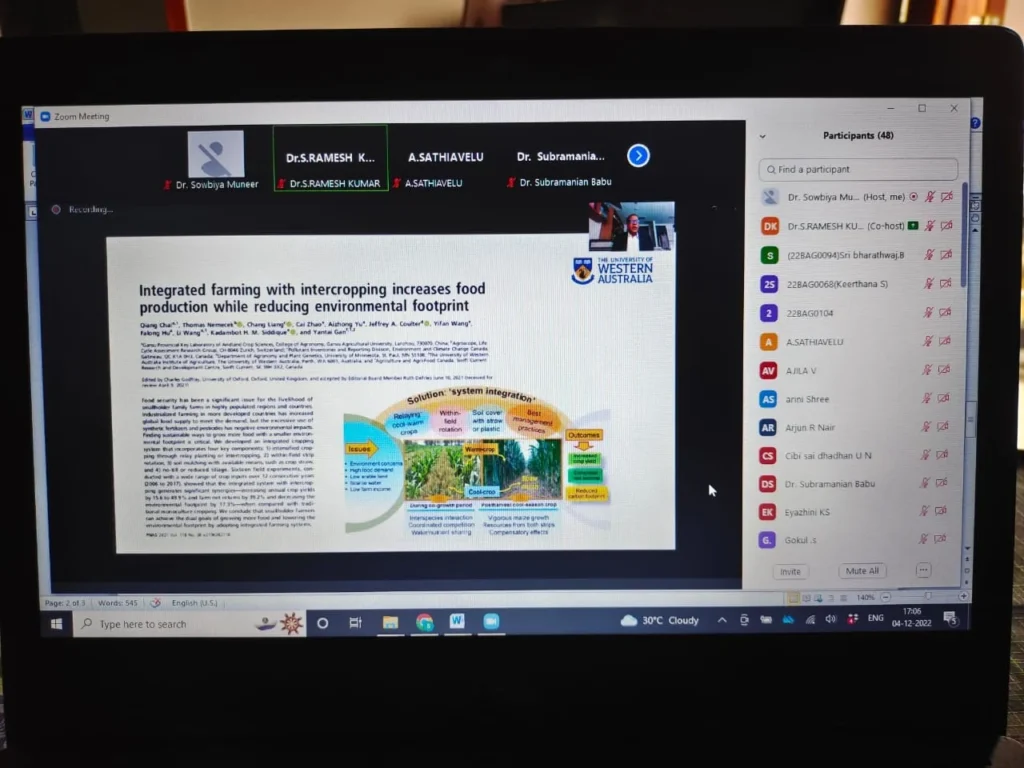
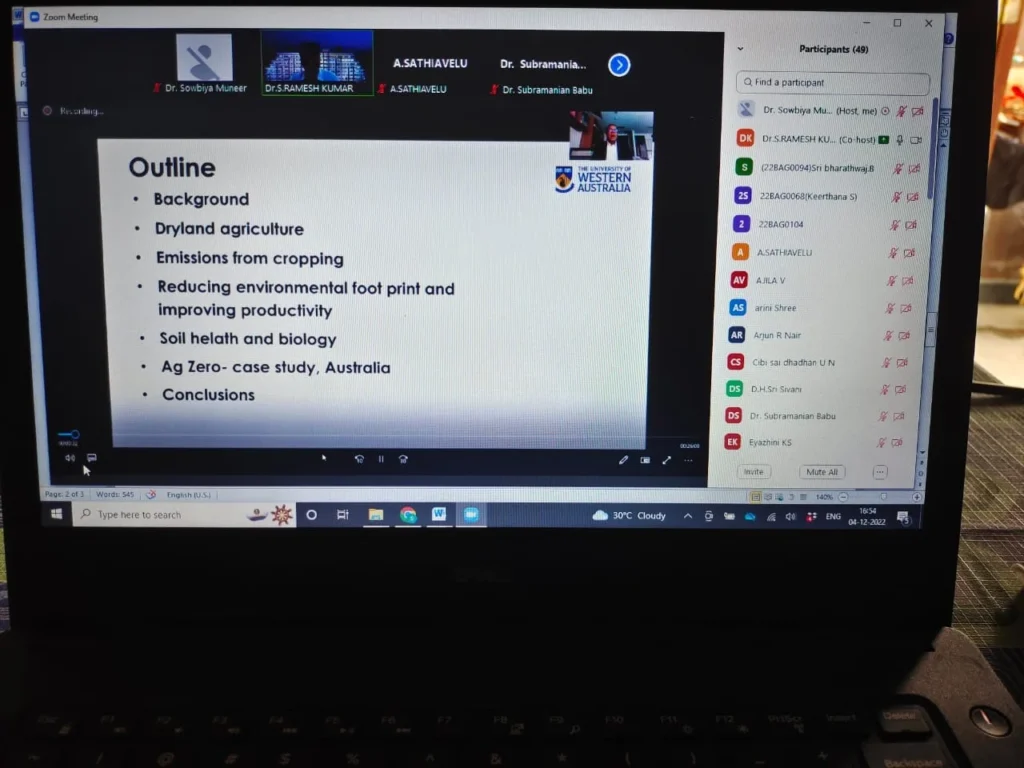
International Conference III
ONE DAY INTERNATIONAL VIRTUAL CONFERENCE
RECENT ADVANCEMENTS IN POWER SYSTEM AND RENEWABLE ENERGY (RAPSRE’22)
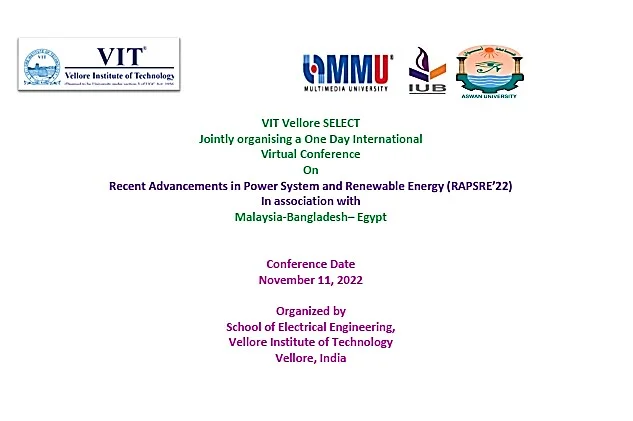
- Date : November 11, 2022
- Time : 10:00 AM to 5:00 pm
- Venue: TT311 & Online Mode
- No.of.Participants: 120
Resource Persons:
Dr. Gobbi Ramasamy. P.Eng., Ph.D.,
Associate Professor
PV Energy Storage Lab, Centre For Electric Energy and Automation (CEEA)
Faculty of Engineering, Multimedia University, Cyberjaya, Selangor, Malaysia
Dr. Md. Abdur Razzak, Ph.D
Professor & Former Head
Department of Electrical & Electronic Engineering
Director, Institutional Quality Assurance Cell & Additional Director, Green Energy Research Center, Independent University, Bangladesh
Dr. Abdel-Moamen Mohammed
Assistant Professor, Faculty of Energy Engineering,
Aswan University, Egypt
Recent Advancements in Power System and Renewable Energy (RAPSRE’22)
The virtual conference was inaugurated by Dr. I. Jacob Ragland, Professor & HOD (EEE) School of Electrical Engineering. The coordinator Dr. K Ravi gave the introduction speech about RAPSRE’22. The virtual conference started at 10:00 AM and the resource person addressed the participants on the following topics:
- Emerging trends in Electric hybrid vehicle
- Applications of Renewables and Energy Efficient Technologies for Meeting Sustainable Development Goals
- Algal biofuel over other renewable energy sources
The objective of the conference was to provide a professional forum to discuss and apply the most recent advancement in power systems, renewable energy domain pertaining to national and international level research. Eminent professors from Malaysia, Egypt and USA were a part of this conference.
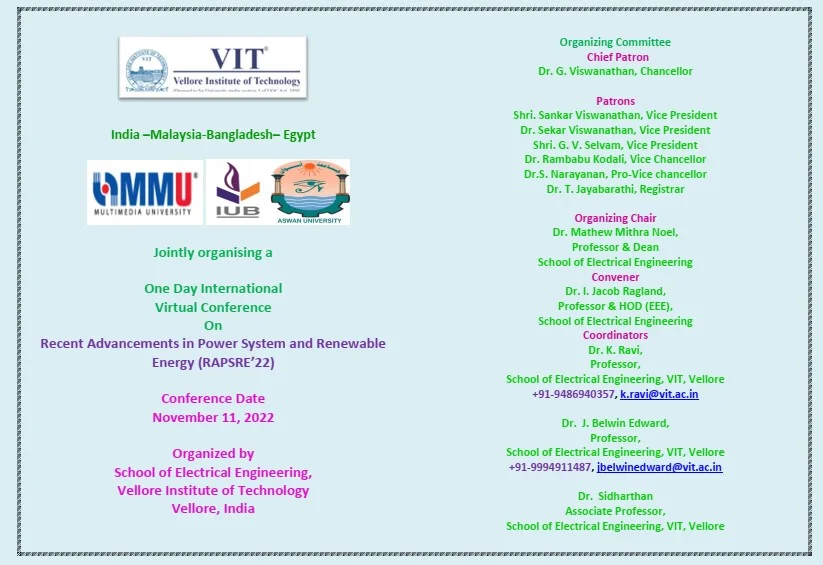
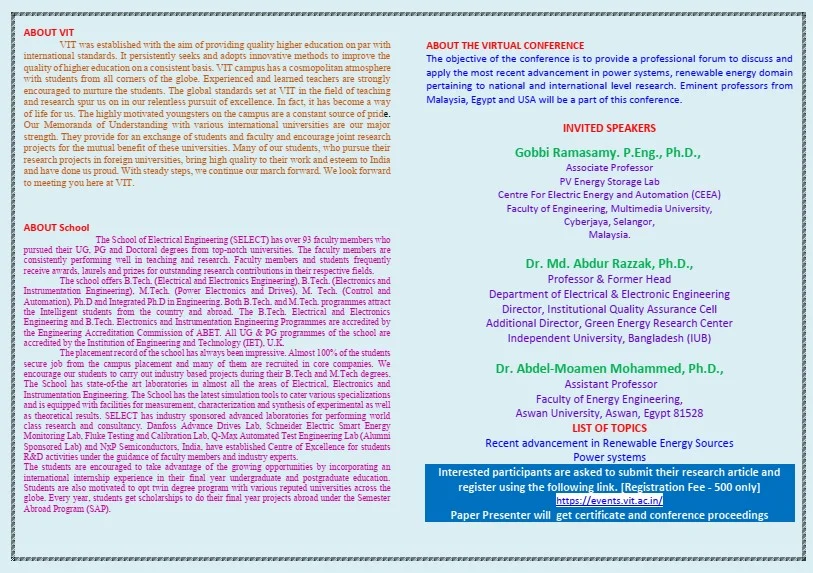
Brochure
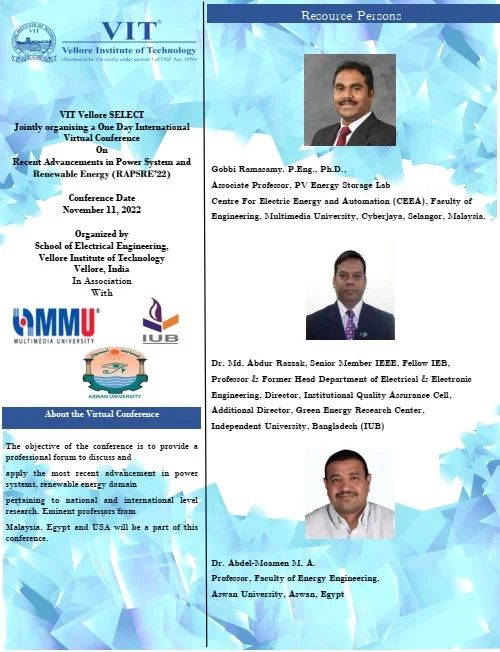
Conference Flyer
